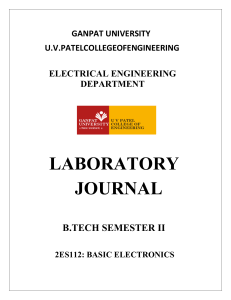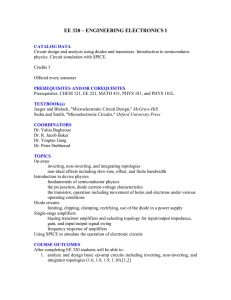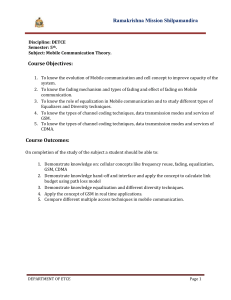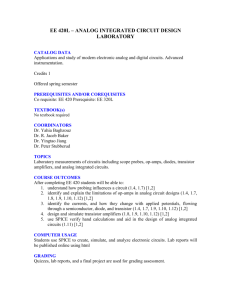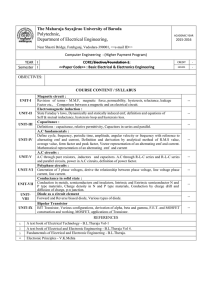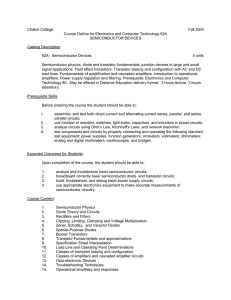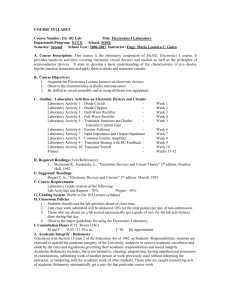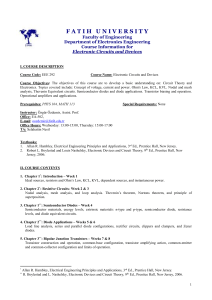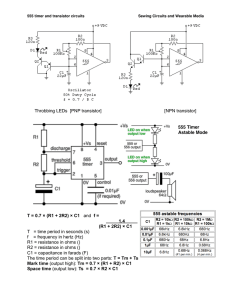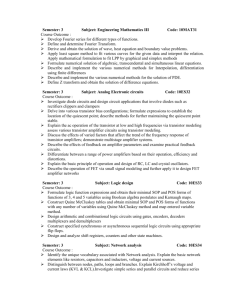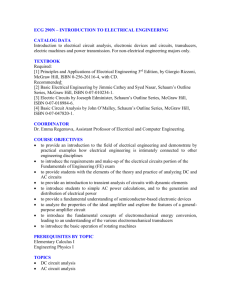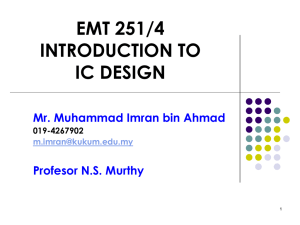Engineering Electronics I Laboratory
advertisement
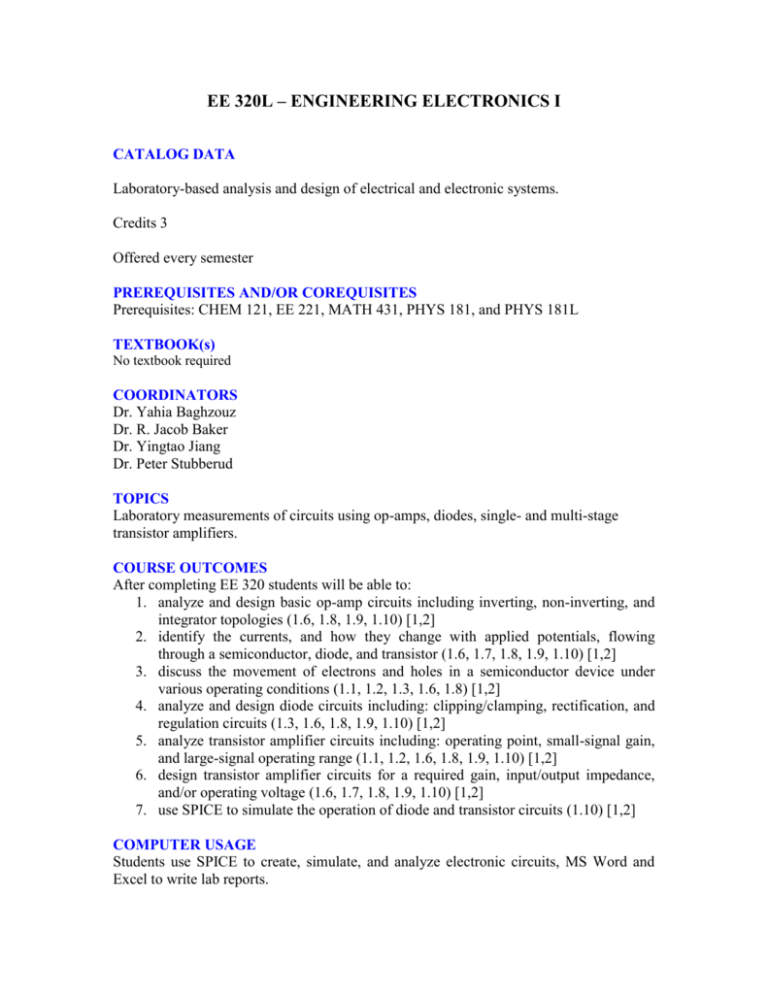
EE 320L – ENGINEERING ELECTRONICS I CATALOG DATA Laboratory-based analysis and design of electrical and electronic systems. Credits 3 Offered every semester PREREQUISITES AND/OR COREQUISITES Prerequisites: CHEM 121, EE 221, MATH 431, PHYS 181, and PHYS 181L TEXTBOOK(s) No textbook required COORDINATORS Dr. Yahia Baghzouz Dr. R. Jacob Baker Dr. Yingtao Jiang Dr. Peter Stubberud TOPICS Laboratory measurements of circuits using op-amps, diodes, single- and multi-stage transistor amplifiers. COURSE OUTCOMES After completing EE 320 students will be able to: 1. analyze and design basic op-amp circuits including inverting, non-inverting, and integrator topologies (1.6, 1.8, 1.9, 1.10) [1,2] 2. identify the currents, and how they change with applied potentials, flowing through a semiconductor, diode, and transistor (1.6, 1.7, 1.8, 1.9, 1.10) [1,2] 3. discuss the movement of electrons and holes in a semiconductor device under various operating conditions (1.1, 1.2, 1.3, 1.6, 1.8) [1,2] 4. analyze and design diode circuits including: clipping/clamping, rectification, and regulation circuits (1.3, 1.6, 1.8, 1.9, 1.10) [1,2] 5. analyze transistor amplifier circuits including: operating point, small-signal gain, and large-signal operating range (1.1, 1.2, 1.6, 1.8, 1.9, 1.10) [1,2] 6. design transistor amplifier circuits for a required gain, input/output impedance, and/or operating voltage (1.6, 1.7, 1.8, 1.9, 1.10) [1,2] 7. use SPICE to simulate the operation of diode and transistor circuits (1.10) [1,2] COMPUTER USAGE Students use SPICE to create, simulate, and analyze electronic circuits, MS Word and Excel to write lab reports. GRADING Homework, quizzes, two midterm exams, and a final project are used for grading assessment. ABET COURSE OUTCOMES 1. The appropriate technical knowledge and skills 1. An ability to apply mathematics through differential and integral calculus, 2. An ability to apply advanced mathematics such as differential equations, linear algebra, complex variables, and discrete mathematics, 3. An ability to apply knowledge of basic sciences, 6. An ability to apply knowledge of engineering, 7. An ability to design a system, component, or process to meet desired needs within realistic constraints, 8. An ability to identify, formulate, and solve engineering problems, 9. An ability to analyze and design complex electrical and electronic devices, 10. An ability to use the techniques, skills, and modern engineering tools necessary for engineering practice, 11. An ability to design and conduct experiments, as well as to analyze and interpret data. UULO COURSE OUTCOMES 1. Intellectual Breadth and Lifelong Learning 2. Inquiry and Critical Thinking 3. Communication 4. Global/Multicultural Knowledge and Awareness 5. Citizenship and Ethics COURSE PREPARER AND DATE OF PREPARATION R. Jacob Baker, Monday, January 15, 2015
